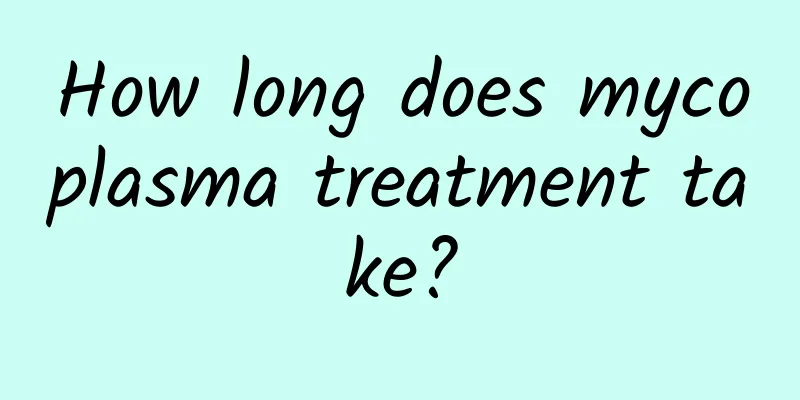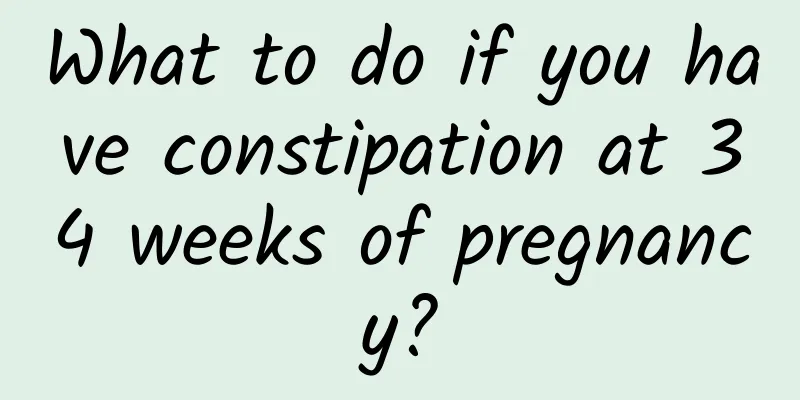How long does mycoplasma treatment take?

|
Mycoplasma is a common pathogen that is quite harmful to the body. When mycoplasma infection occurs, regular treatment must be carried out in a timely manner. The most common treatment method is antibiotic treatment, which is also an important method for treating mycoplasma infection. Common drugs include erythromycin. In addition, azithromycin, roxithromycin, etc. are all relatively common drugs. In the case of fever, fever should be reduced in time. 1. Antibiotic treatment Correct selection of antibiotics is the key to the success of treating mycoplasma pneumonia. The most effective treatment for mycoplasma pneumonia is erythromycin, but because erythromycin can cause more serious gastrointestinal reactions, other macrolide antibiotics such as josamycin, midecamycin, spiramycin, leucomycin, and mecamycin can be used instead. The new generation of macrolide antibiotics, such as erythromycin and azithromycin, have fewer side effects due to the low frequency of medication and generally need to be taken for 2-3 weeks, otherwise relapse is likely to occur. 2. Antiasthmatic For patients with severe wheezing, bronchodilators can be used, such as oral aminophylline, 4-6 mg/(kg·time), once every 6 to 8 hours; or inhaled salbutamol can be used. 3. Fever Low fever must be treated, and if the body temperature is above 38°C, it can be treated with Anrique and other drugs. 4. Expectorant The purpose is to make the sputum thinner and easier to discharge, thereby reducing the chance of bacterial infection. In addition to strengthening turning over, patting the back, nebulization, and suctioning sputum, you can also use expectorants such as Bisuoping and Tanyijing. Since cough is the most prominent clinical manifestation of Mycoplasma pneumonia, frequent and severe coughing will affect the sleep and rest of children. Sedatives such as chloral hydrate or phenobarbital can be given appropriately, and small doses of codeine can be given to suppress cough as appropriate, but the number of times should not be too many. 5. Combination of Chinese and Western medicine It is more effective to use traditional Chinese medicine while taking antibiotics, because traditional Chinese medicine treats mycoplasma infection not only targets mycoplasma, but also mobilizes the body's immune function, promotes expectoration, and enhances respiratory function. Commonly used drugs include roasted ephedra, apricot kernel, gypsum, scutellaria, belamcanda, cicada shell, bombyx batryticatus, peucedanum peucedanum, and adenophora. 6. Other symptomatic treatments In addition, many children may also experience extra-respiratory symptoms, such as rash, muscle and joint pain, swelling, hemolytic anemia, myocarditis, pericarditis and other complications, all of which require targeted treatment. |
<<: Symptoms of mycoplasma infection
Recommend
How to remove stretch marks?
In daily life, many people have encountered stret...
Lumbar Spine Strengthening Pills
Lumbar Strengthening Pills is a Chinese patent me...
Is it useful to take folic acid after pregnancy?
As we all know, folic acid is a water-soluble vit...
What causes tinnitus and dizziness?
Dizziness and tinnitus are very common symptoms a...
How to remove dead skin from your lips, six tips to give you sexy lips
Many people tend to have dry and flaky lips when ...
Early symptoms of hepatitis B
The liver is an important organ in our body and i...
What kind of exercise can treat kidney deficiency? If you want to nourish your kidneys, do these three exercises
Kidney deficiency is a common disease in the huma...
What Chinese medicine should I take to treat liver depression and fire
Liver depression and fire can be regulated and tr...
How to treat bronchial pneumonia in children
How to treat bronchopneumonia in children? Becaus...
How to use cupping essential oil
Cupping is a traditional treatment method in Chin...
Is the pleural effusion serious?
Whether there is fluid in the chest cavity is a v...
What is the normal value of urine amylase?
The human body has an excretion system, and what ...
What to eat for acute pancreatitis? It turns out these are better
In addition to active treatment, diet is also ext...
What are the common symptoms of mild cerebral infarction?
Cerebral infarction is a relatively common diseas...
Black Truffle Deer Penis Slices
Black truffle deer penis slices have many functio...









